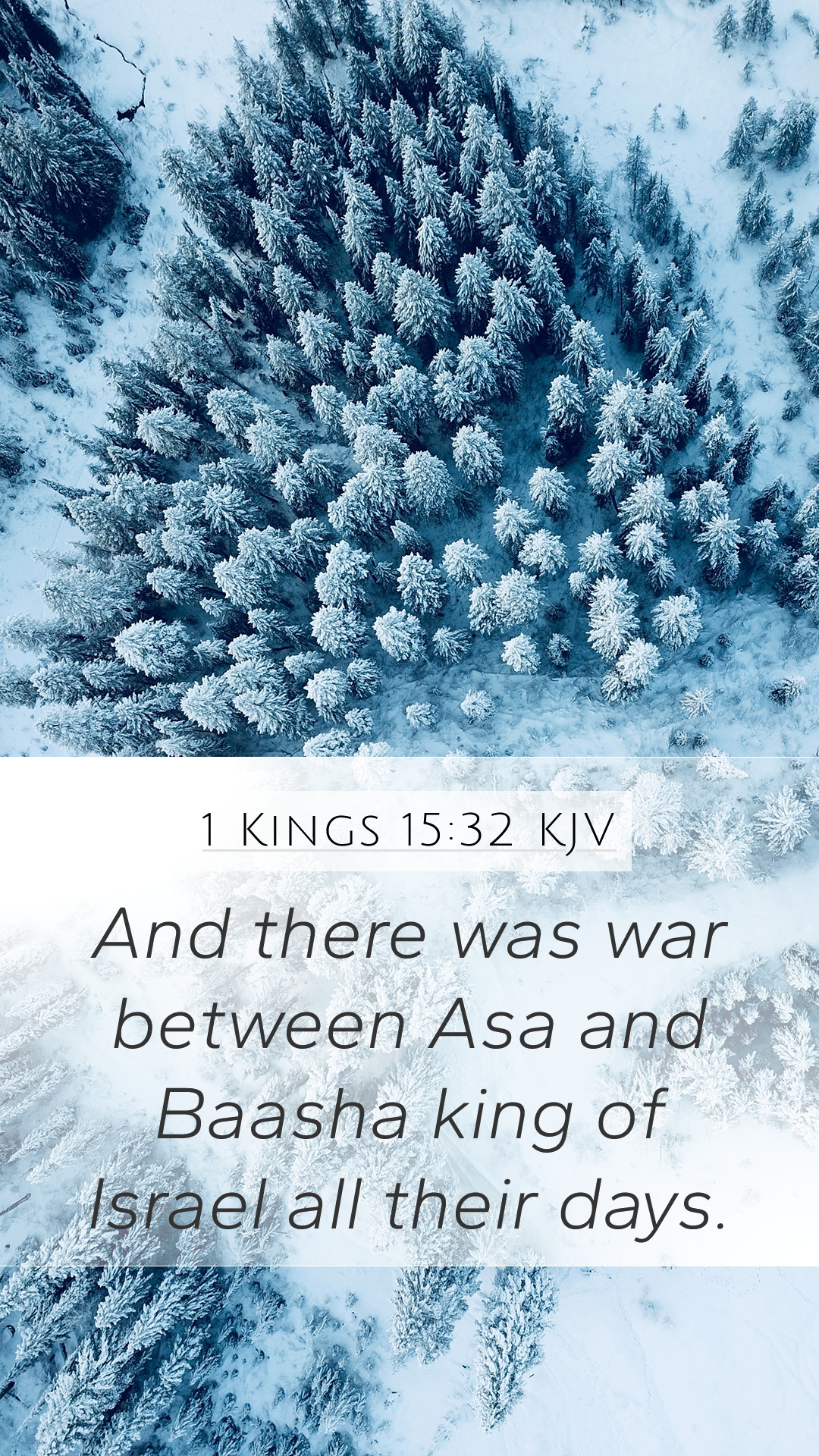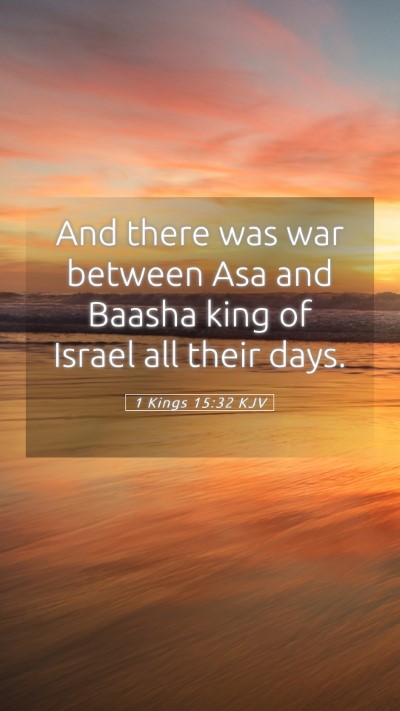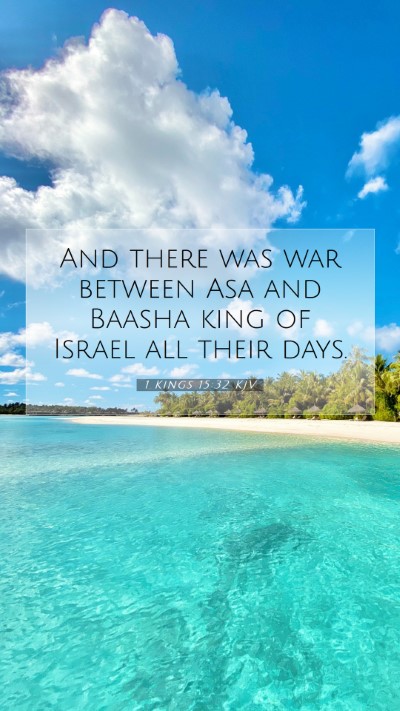Bible Verse Meaning and Commentary on 1 Kings 15:32
1 Kings 15:32 states, "And there was war between Asa and Baasha king of Israel all their days." This verse appears amidst the narrative of the divided kingdom of Israel, focusing on the reign of Asa in Judah and the ongoing conflict with Baasha, the king of Israel. Below we explore the bible verse meanings and bible verse interpretations provided by several public domain commentaries.
Contextual Overview
In the historical context, the conflict between Asa and Baasha is significant as it represents the larger spiritual and political strife within the divided kingdoms of Israel and Judah. This serves as an example of how the kings often faced opposition not just on military fronts but also in matters of faith and adherence to God’s commandments.
Bible Verse Commentary
-
Matthew Henry's Commentary:
Matthew Henry highlights the irony of the situation; despite Asa being a king who made efforts towards reform and righteousness, he still faced consistent opposition from Baasha. Henry emphasizes that this conflict was divinely permitted, serving as a reminder of the ongoing struggle against sin and moral decline that both kingdoms faced. He also points to the idea that such wars often stemmed from the kings’ wickedness and the idolatry prevalent in the Northern Kingdom.
-
Albert Barnes' Notes:
Albert Barnes focuses on the nature of the warfare described. He notes that the phrase "all their days" denotes a prolonged period of animosity. This underscores the instability in both kingdoms and the failure of the leadership to seek peace, which stems from a lack of commitment to God’s ways. Barnes also comments on how the wars reflect the broader spiritual war that existed, indicating that these physical conflicts were often mirrors of the internal spiritual battles that were ongoing within the people.
-
Adam Clarke's Commentary:
Adam Clarke describes the implications of such warfare for the people of Israel and Judah. He suggests that these conflicts illustrate the consequences of idolatry and the divisions that arise when leaders turn away from God. Clarke emphasizes that Asa's reforms and Baasha's opposition highlight a pattern where righteous leadership is met with resistance from those who turn away from God's commands. This serves as a critical piece of biblical exegesis, informing readers about the spiritual ramifications of the kings' actions.
Thematic Insights
The ongoing strife represented in 1 Kings 15:32 symbolizes the broader themes of Bible verse understanding and the eternal conflicts that can arise from differing spiritual values. The passage offers vital Bible study insights into the nature of kingship in Israel and Judah, contrasting Asa's righteousness with Baasha's hostility.
Lessons from 1 Kings 15:32
-
Faithfulness in Leadership:
Asa's commitment to God amidst adversity teaches about the importance of standing firm in faith despite opposition that may arise in any leadership role.
-
Consequences of Idolatry:
The continuous warfare serves as a reminder of the turmoil that often follows when people and leaders turn away from God, demonstrating the significance of Jesus' teachings on maintaining spiritual integrity.
-
The Role of Conflict:
This passage illustrates that conflicts can serve as a means for God to bring about His purposes, reminding readers through bible study guides that struggles can lead to growth and deeper dependencies on divine guidance.
Relevant Cross References
- 2 Chronicles 14:1-3 - Discusses Asa's reforms and reliance on God during times of trouble.
- 1 Kings 12:16 - Establishes the division of the kingdoms and the initial hostilities.
- 1 Kings 16:1-7 - Discusses the rise of Baasha and God's message through the prophets regarding his wickedness.
Applying This Scripture to Daily Life
Understanding the application of 1 Kings 15:32 in contemporary life encourages individuals to reflect on their own leadership roles, whether in family, community, or spiritual contexts. It prompts questions regarding the nature of our conflicts and the sources behind them, urging believers to strive for peace, uphold righteousness, and remain steadfast against external pressures that seek to undermine their faith.
Conclusion
In summary, 1 Kings 15:32 encapsulates essential themes of conflict, leadership, and faithfulness in the face of adversity. This Bible verse commentary draws attention to the importance of understanding the historical and spiritual contexts surrounding Scripture to fully grasp its implications on individual lives today. Through careful scripture analysis and understanding of its significance, readers can gain profound insights into their walk with God and the challenges that come with it.


